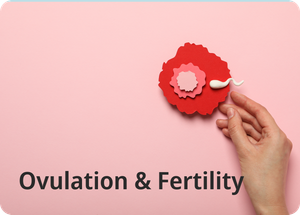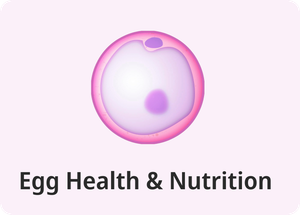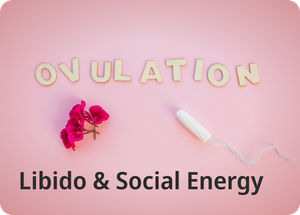“Let food be thy medicine and medicine be thy food.” – Hippocrates
Nutrition is one of the most important foundations of reproductive health. While the menstrual cycle has several phases, ovulation is the most fertile window. It occurs roughly in the middle of the cycle, when a mature egg is released from the ovary. For women who are trying to conceive, supporting the body with the right foods during this phase can enhance fertility and improve overall reproductive wellness.
Snacking is often overlooked in fertility diets, but it plays a crucial role. Small, nutrient-rich snacks help maintain stable blood sugar, support hormone balance, and provide essential vitamins and minerals for egg quality and reproductive function. Choosing the right snacks around ovulation can therefore make a meaningful difference.
The health of the egg is central to conception. Nutrients like antioxidants, vitamins, and omega-3 fatty acids protect the egg from oxidative stress and support its maturation.
Ovulation is triggered by a surge in luteinizing hormone (LH), supported by estrogen levels. The right nutrients help stabilize these hormonal patterns and create an environment that favors conception.
Nutrition also influences the uterine lining. A healthy lining supports implantation of a fertilized egg. Nutrients like iron and vitamin C contribute to optimal blood flow and tissue health.
According to NHS and PubMed-based research, the most important nutrients for fertility during ovulation include:
Greek yogurt provides protein and calcium, while berries are rich in antioxidants that protect egg cells from oxidative stress. Nuts like almonds or walnuts add healthy fats and magnesium, which support reproductive hormone balance.
Tip: A small bowl in the afternoon can keep energy stable and reduce sugar cravings.
Eggs are a fertility superfood, rich in choline, vitamin D, and high-quality protein. Pairing them with whole grain crackers provides fiber and keeps blood sugar balanced.
Tip: Sprinkle a little flaxseed powder for an extra omega-3 boost.
This combination provides fiber, vitamin C, and healthy fats. Vitamin C supports blood vessel health and improves iron absorption, while almonds add vitamin E, which protects reproductive cells from damage.
Tip: Choose unsweetened nut butter to avoid added sugars.
Chickpeas in hummus are rich in plant-based protein, iron, and folate. Carrots and cucumbers add hydration, fiber, and antioxidants. Folate is particularly important for early pregnancy and egg health.
Tip: A small serving mid-morning can help maintain steady energy and prevent overeating later.
Dark chocolate (at least 70% cocoa) provides antioxidants and magnesium. Walnuts are one of the best plant-based sources of omega-3 fatty acids. Together, they make a satisfying yet fertility-friendly snack.
Tip: Keep portions small to avoid excess sugar intake.
Legumes are packed with protein, iron, and fiber. Roasted chickpeas are crunchy, easy to prepare, and keep well for quick snacking. Iron is vital during ovulation to support healthy blood flow and preparation for potential implantation.
Tip: Lightly season with herbs instead of too much salt to avoid water retention.
A fertility-focused smoothie combines leafy greens for folate, banana for potassium, and flaxseeds for omega-3. Spinach also adds magnesium, which helps regulate hormones.
Tip: Blend with unsweetened yogurt or milk for added protein.
Cottage cheese is rich in protein and calcium, while pineapple contains bromelain, an enzyme believed to support implantation by reducing inflammation. While evidence is limited, many fertility-friendly diets include pineapple for this reason.
Tip: Eat as an evening snack to satisfy sweet cravings healthily.
Seeds provide zinc, selenium, and vitamin E, all important for egg health and fertility. Zinc supports ovulation and hormone balance, while selenium protects eggs from oxidative stress.
Tip: Keep a small handful in your bag as an easy on-the-go option.
Hydration supports cervical mucus, which is essential for sperm movement. Herbal teas like raspberry leaf or peppermint can be paired with light snacks such as fruit or whole-grain crackers.
Tip: Avoid excessive caffeine, which can negatively affect fertility when consumed in high amounts.
Occasional difficulty conceiving is common and does not always mean a fertility problem. However, if conception does not occur after 12 months of regular unprotected intercourse (or 6 months if over age 35), NHS advice is to consult a healthcare professional. Keeping track of menstrual cycles and nutrition can provide helpful information for fertility consultations.
Ovulation is a key phase for conception, and nutrition during this time can support egg quality, hormone balance, and reproductive health. Smart snacking with nutrient-rich options like yogurt, nuts, fruits, seeds, legumes, and leafy greens can enhance fertility naturally.
By choosing snacks that work with the body’s natural cycle, women can take simple, enjoyable steps toward supporting fertility and overall menstrual wellness.
About PeriodSakhi
PeriodSakhi is your trusted companion for understanding your menstrual health. With easy-to-use tools, it helps you track your periods, ovulation, fertility, moods, and symptoms, while providing insights into your overall reproductive and hormonal health. PeriodSakhi also serves as a supportive online community where women can share experiences, find reliable information, and access expert-backed guidance on menstrual health, PCOS, pregnancy, lifestyle, and more.
Disclaimer
The views, thoughts, and opinions expressed in this article/blog are solely those of the author and do not necessarily reflect the views of PeriodSakhi. Any omissions, errors, or inaccuracies are the responsibility of the author. PeriodSakhi assumes no liability or responsibility for any content presented. Always consult a qualified medical professional for specific advice related to menstrual health, fertility, pregnancy, or related conditions.
Start the conversation
No comments yet. Start the conversation by leaving the first comment!




